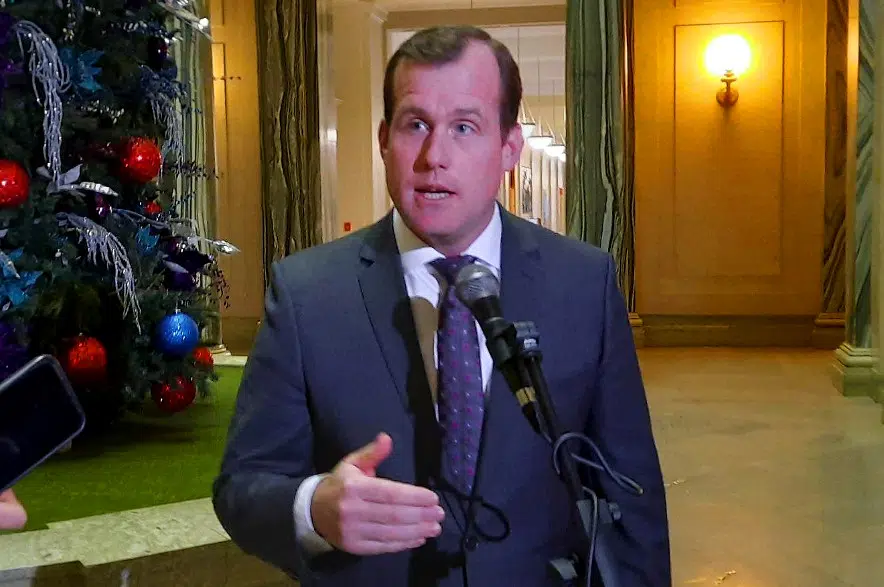The Saskatchewan NDP’s finance critic isn’t being shy about his thoughts on bringing corporate income taxes home for Saskatchewan to collect itself.
“This is a real backwards plan, more costly plan, without merit,” said Trent Wotherspoon, continuing later on to call it a bonehead move.
On Monday, the Saskatchewan Party government introduced a bill that would create the Crown corporation and infrastructure for the province to start collecting its own corporate income tax. Currently, the federal government collects it at no cost to Saskatchewan, along with the federal portion, then sends the provincial portion back to Saskatchewan.
Wotherspoon said the move will be less efficient, requiring businesses to file twice with different schedules, and could add significant complexity to the tax system. He also doesn’t buy the assertion that the move would be revenue neutral and wouldn’t cost the provincial government.
“We’re talking about a big undertaking here. We’re talking about very skilled experts that need to be retained, we need to build out that office capacity and all the costs to build something out — and this is currently being delivered for free by the federal government so this is definitely something that is going to cost the province more, that’s going to grow government in Saskatchewan at this time, that’s going to make things more cumbersome (and) less efficient for businesses at this point in time,” he explained.
Wotherspoon said the move takes time and attention away from government with very little to show for it.
“I’m surprised to see this government didn’t back away from this plan that didn’t have any merit and lacked common sense from the get-go,” said Wotherspoon.
However, Finance Minister Donna Harpauer argues the move will be worth it.
“I think it’s going to be very important,” said Harpauer.
The minister identified two advantages to making the move. First is being able to get data on corporations and the business sectors in Saskatchewan sooner – currently the numbers they can get from the Canada Revenue Agency are two years old.
“We have a number of industry-specific incentive programs that it would be helpful to know … where they are financially and what position when we look at these incentive programs,” she explained.
Harpauer also talked about being able to make changes that the government believes would be beneficial.
She gave, as an example, a change she said the federal government made to passive income three years ago that her government feels is harmful to some people, particularly female doctors and veterinarians who might be putting money away so they can take a maternity leave and still keep and pay for their business.
When the provincial government brought two proposals to the federal government to fix it, according to Harpauer, it refused to make the changes.
“That would be a situation where we could make the change provincially, should we be administering our own corporate income tax,” said Harpauer.
Alberta collects its corporate income tax and Quebec collects all its own taxes, so Harpauer said it would be interesting if the federal government tried to refuse this change to Saskatchewan.
Having spoken with counterparts in Alberta, Harpauer believes the change could be at least close to revenue neutral, perhaps even with a small revenue stream.
While there are costs associated with collecting the tax, she explained that all penalties, fees and interest charges would then go to the province. The government also wouldn’t have to pay the federal government for changes the provincial government makes.
Harpauer said, at the moment, the provincial government is only looking at making this change when it comes to corporate income tax.
“I think there would be a lot more work and exploration that we’d need to do (to collect personal income taxes) and whether or not there’s an advantage to doing that,” said Harpauer.
Moe bucks
Harpauer also gave an update Monday that all of the affordability tax credit cheques — or Moe bucks as some have been calling them — have been sent out. There could be some that hadn’t been sent out for those who filed their taxes late.
The minister seemed fairly happy with how it went.
“With the number of cheques that went out, I think it was fairly quick,” said Harpauer.
About 900,000 cheques were sent out. Harpauer couldn’t give an exact number on the cost of the program yet.







